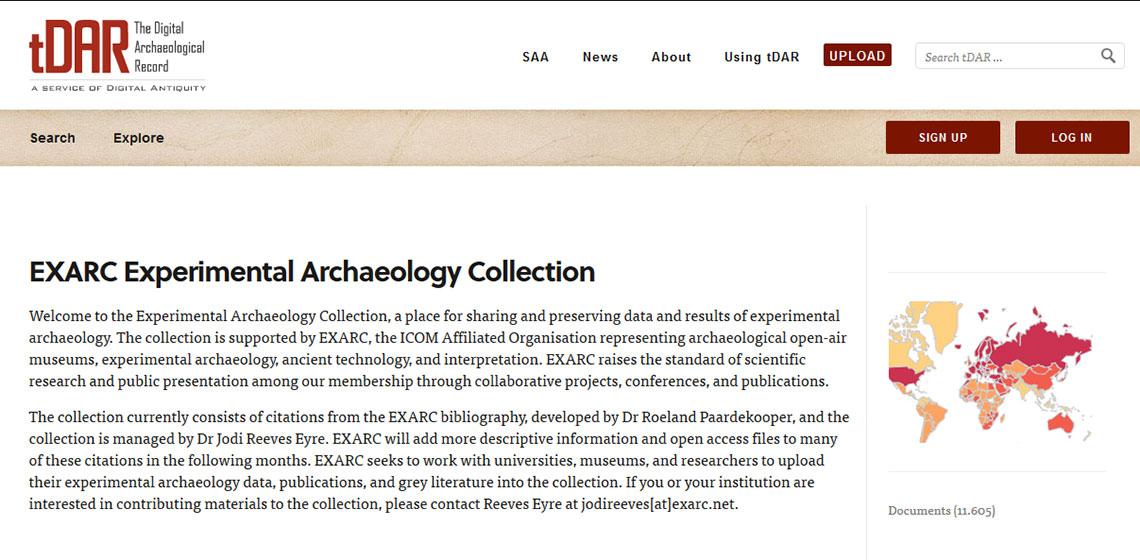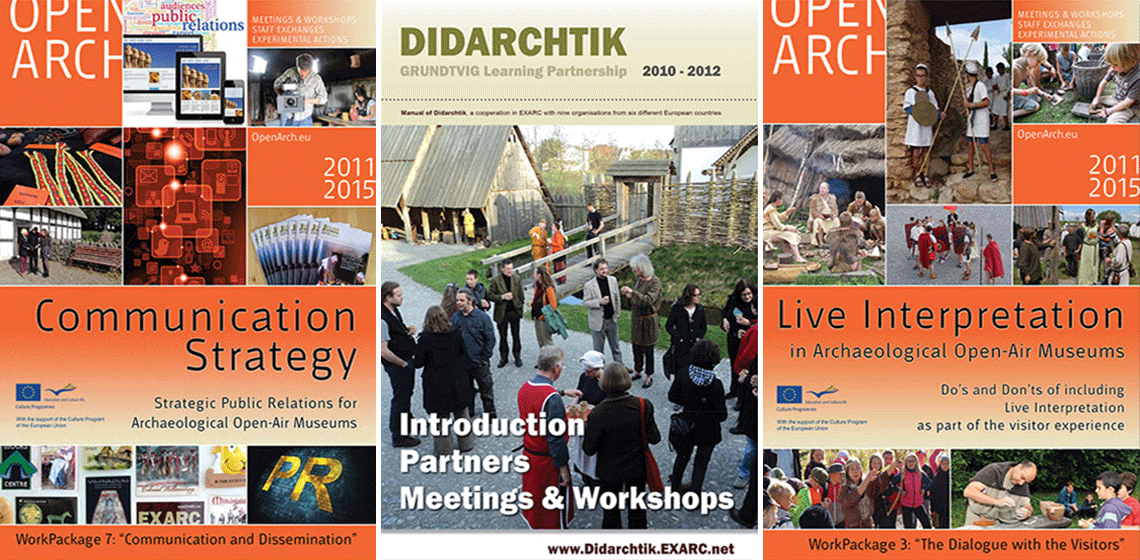Reading Corner
"EXARC not only recognises the gap that is often identified between archaeological research and experimentation, but they also act to bridge it. Many valuable tools are provided to meet this goal. Through their unique work, I can only imagine the dialogue between experimental archaeology and academic investigations intensifying in the years to come."
Daniël Postma PhD, Archaeo Build, UK
Please find here background information for further consultation. It includes an overview of literature, our podcasts and a collections of manuals, which developed by our members during the course of cooperation projects. Please contact us if there is anything you like to contribute.
Discover Our Resources:
All content is Open Access.
 Bibliography
Bibliography
The EXARC Experimental Archaeology Collection is an online place for sharing and preserving data and results of experimental archaeology. The collection (with 11,500 titles) is supported by EXARC and hosted by the Digital Archaeological record (tDAR).
 Podcast: The EXARC Show
Podcast: The EXARC Show
The EXARC Show brings to you the world of archaeological open-air museums, experimental archaeology, ancient technology, and interpretation as a podcast. In each show, we’ll introduce you to the work of specialists in a friendly and approachable format.

 Manuals
Manuals